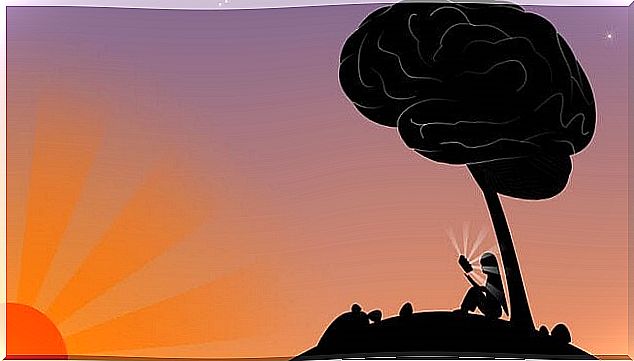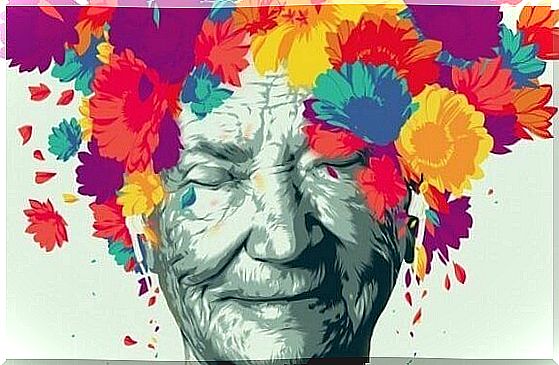Intelligence And Wisdom: 5 Differences To Know

Intelligence and wisdom are not synonymous, although in everyday language they are used indistinctly. We live in a society that values efficiency and results, where apparently only the most intelligent are destined to triumph. However, only the wise achieve genuine happiness, because they are value-oriented, concerned with making use of goodness and applying a more optimistic outlook on life.
If we look up the term wisdom in the dictionary, we will find a simple definition: the ability of people to act sensibly, prudently or in balance. At this point, the first question that arises spontaneously is: then does intelligence not endow us with this same ability? An average or high IQ does not guarantee us the power to make balanced decisions and sensible? What is the difference between intelligence and wisdom ?
It is clear that the answer is yes, and that intelligence has several nuances. Personality and emotional maturity are conditioning agents that affect the judgment of the brilliant person, and his more or less able potential to invest in his own well-being and that of others.
Intelligence and wisdom are two interesting concepts that should be defined, analyzed and separated; the goal is to acquire a more exact and useful idea. Because in life, in addition to having a high IQ , it is useful to develop exceptional vital wisdom and to shape a dazzling virtue, one that goes a step beyond the cognitive and emotional sphere.

Differences between intelligence and wisdom
The differences between intelligence and wisdom have only recently been studied. The concept of wisdom has always been associated with philosophical or even spiritual disciplines, where the great Greek or Buddhist masters have enlightened us with their transcendental ideas, reflections and advice.
In recent decades, however, psychology has begun to delve into this issue. Some work, such as that of two professors in the psychiatry department of the University of California at San Diego, Dr. Dilip V. Jeste and Dr. Thomas W. Meeks, have given us very interesting ideas.
Here are the differences between intelligence and wisdom.
Experience does not make us wiser
This idea is important and breaks down a classic myth. It is often said that experience also offers us wisdom. However, there is no direct and strong association between having lived a lot or a little and becoming wise. This virtue does not come naturally as we age .
Furthermore, several psychologists and sociologists have tried to better understand the social, emotional and cognitive processes that transform experience into wisdom. There are several variables, such as the ability to reflect, which condition the typical experience / wisdom association.

Intelligence makes us efficient and ethically more competent
Smart people have a high sense of efficiency and what they consider to be “good”. When something doesn’t match their expectations, they get overwhelmed with frustration. They are very goal-oriented, concrete and above all desirable results.
This view often causes us to fall into wearying states, as, on average, people with high IQs do not tolerate uncertainty and this factor is just a radical difference between intelligence and wisdom. Wise people, in fact, know how to accept the unexpected, they know how to relativize and adopt a more patient, relaxed and understanding gaze towards reality.
Wise people make better decisions
We want to point out once again that there are many individual differences between people with high IQs. Some make decisions with balance and responsibility, others let themselves be carried away by what is practical and objective without evaluating other nuances.
If there is a clear difference between intelligence and wisdom it is that the latter dimension is associated with more open minds, to integrate something that goes beyond mere practical knowledge. Wise people have a thoughtful experience, a profound sense of life for which they come to accept the uncertainties and ups and downs of life.
Likewise, they develop a more precise awareness of how events evolve over time; all this gives them a greater and more defined sense of balance.

Intelligence can be used to practice goodness or evil
A high IQ can be applied for noble purposes or, conversely, to manipulate, conspire, betray or develop the most sophisticated action with a perverse end. Likewise, it can also be oriented towards more noble and lofty purposes.
Wisdom, on the other hand, is tied to the most authentic sense of goodness; it has always had this connotation full of common sense, humanity and spirituality with which to inspire others to do good deeds.
The wise man is optimistic
Another interesting difference between intelligence and wisdom is that the latter virtue almost always shares a very positive view of life, people and reality. This almost always encouraging, resolute and fresh attitude is related to what has just been described; to the sense of goodness and to this we owe his innate ability to move us, equip us with energy and desire to continue, listen to his advice and imitate his own vision of things.
At this point, you may be wondering what is best, whether to be wise or highly intelligent. Well, it must be said that there is no one dimension better than the other, because there are wise men who are neither brilliant nor intelligent, but extremely operative and, obviously, happy.
We can aspire (depending on our possibilities) to both dimensions. We can train our cognitive processes, improve our emotional intelligence and integrate each experience in a more sensible, relaxing and optimistic perspective.








